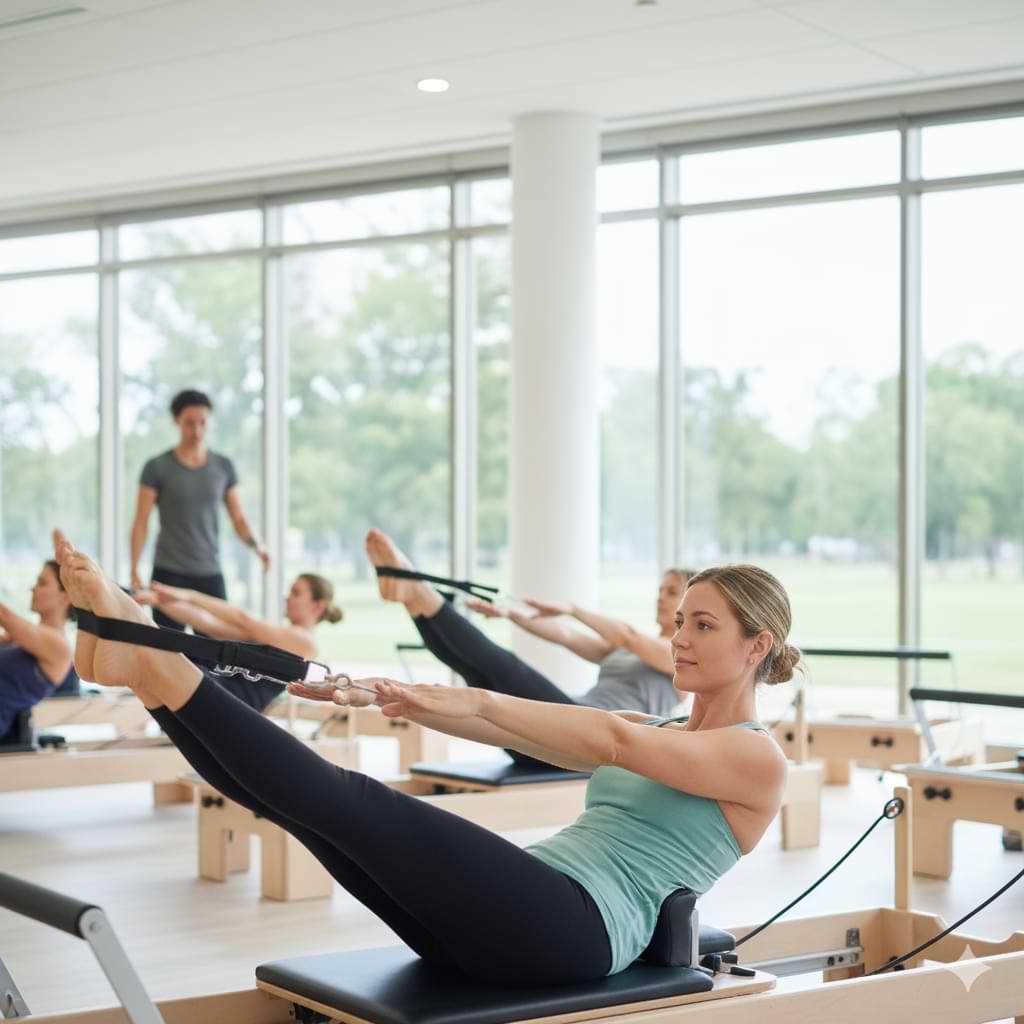(02) 8850 1238
What Makes Clinical Pilates Different?
Unlike traditional Pilates classes, Clinical Pilates is guided by physiotherapists or trained clinicians. Each session is tailored to your needs, whether you’re recovering from an injury, managing chronic pain, or working on posture and core strength. The focus is on precision, safe movement, and gradually building stability that carries over into daily life.
Factors That Influence How Often You Should Do Clinical Pilates
Before setting a routine, it’s important to consider a few key factors:
Your personal goals – Are you aiming for injury recovery, better posture, pain relief, or general strength?
Your current condition – Pain levels, injuries, or mobility issues may affect how often you can train.
Your experience level – Beginners may need more recovery time between sessions compared to advanced participants.
Type of sessions – Equipment-based sessions can be more demanding than mat-based or gentle clinical exercises.
Other activities – If you’re also doing gym workouts, running, or sports, Pilates should complement—not overload—your body.
Rest and recovery – Sleep, nutrition, and stress all play a role in how well your body adapts.
How Often Should You Do Clinical Pilates?
Here are some general recommendations depending on your stage and needs:
2–3 sessions per week in the early stages.
Focus on gentle, supervised movements tailored to your condition.
Home exercises prescribed by your physiotherapist are often added between sessions.
1–2 sessions per week, combined with a structured home program.
This is ideal once you’ve moved beyond the initial injury stage and are building consistency.
1 session per week can help maintain progress and support overall posture and core control.
Great for people who are otherwise active but want ongoing professional guidance.
2–3 sessions per week may be suitable if you’re aiming for improved athletic performance or advanced conditioning.
Always ensure proper recovery to avoid overtraining.
Signs You’re Doing the Right Amount
You’re likely on track if:
Your posture, strength, and mobility are improving gradually.
You can progress to more challenging exercises with good form.
Mild muscle soreness resolves within 24 hours.
You may need to adjust if:
You experience persistent soreness or pain flare-ups.
You feel fatigued and unable to recover between sessions.
Your technique begins to suffer due to tiredness.
Making Clinical Pilates Work for You
The best results come from consistency and listening to your body. Most people benefit from starting with 2 sessions per week, then adjusting to 1–2 ongoing sessions depending on their progress and lifestyle. Adding simple home exercises recommended by your physiotherapist can enhance the benefits and help you recover faster.
Conclusion
There’s no universal answer to how often you should do Clinical Pilates—it depends on your goals, health, and progress. The key is to start with a structured plan, reassess regularly, and allow for rest and recovery. At Norwest Central Physiotherapy and Sports Clinic, our physiotherapists design personalised Clinical Pilates programs to help you recover, move better, and achieve lasting results. Whether you’re overcoming injury or aiming to improve overall wellbeing, we’ll guide you to find the right frequency that works for you.
Book your clinical Pilates session today with Norwest Central Physiotherapy & Sports Clinic!

